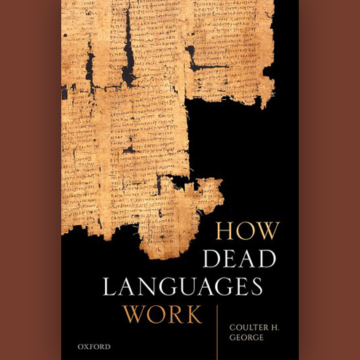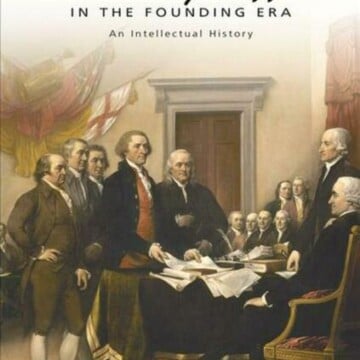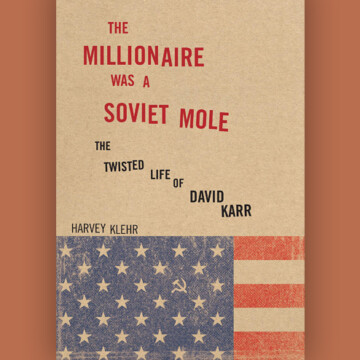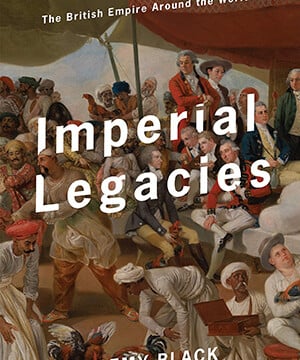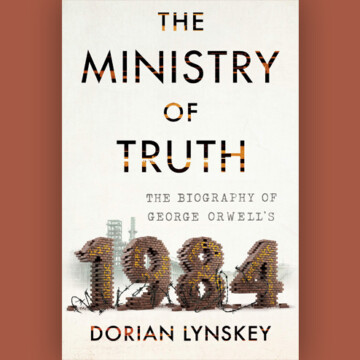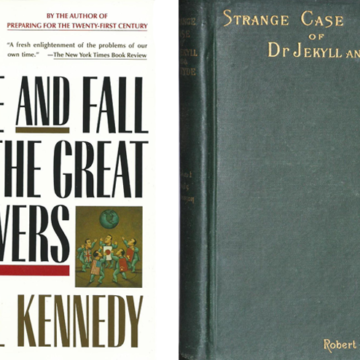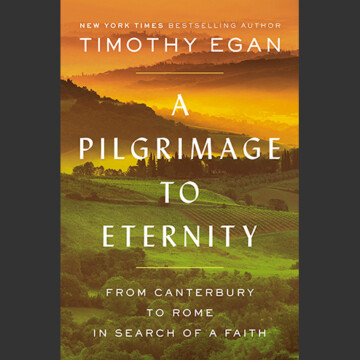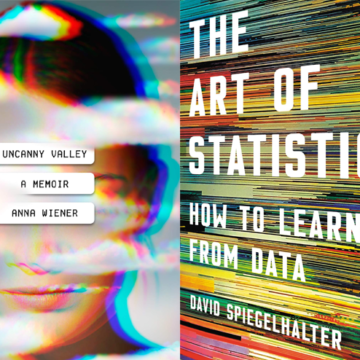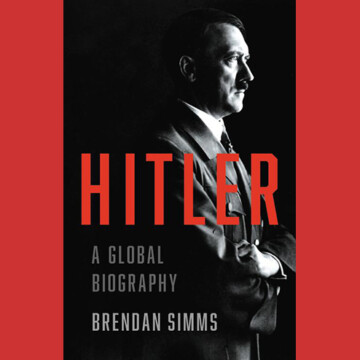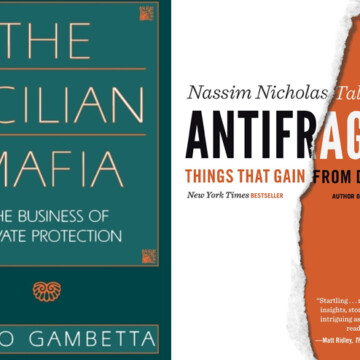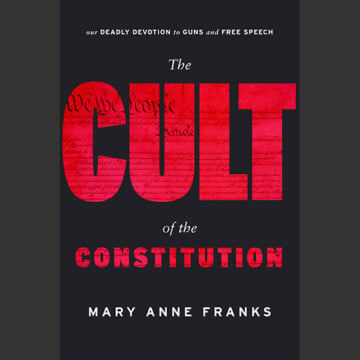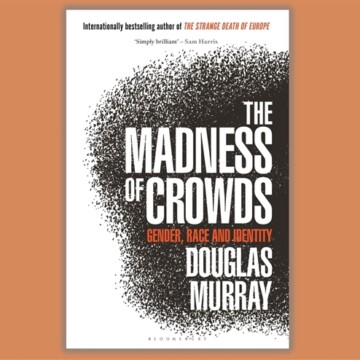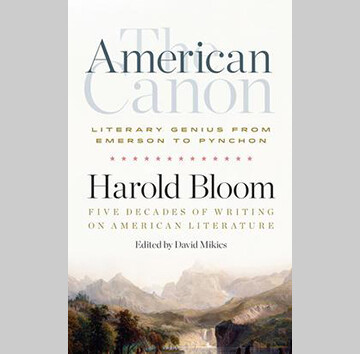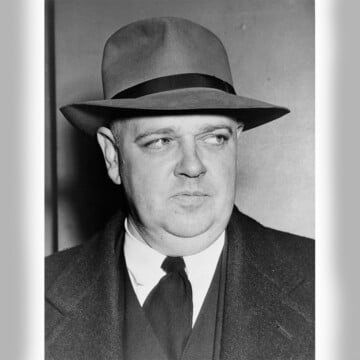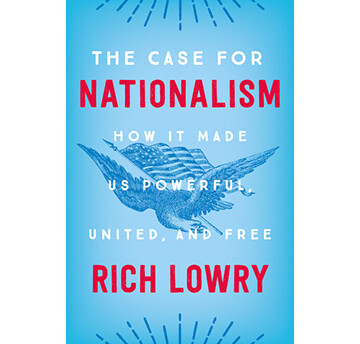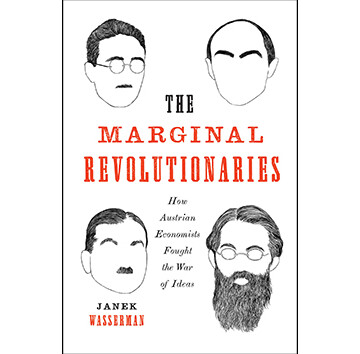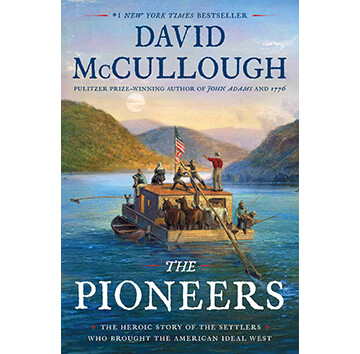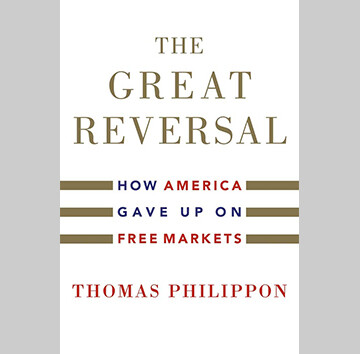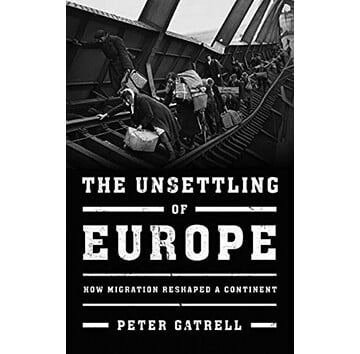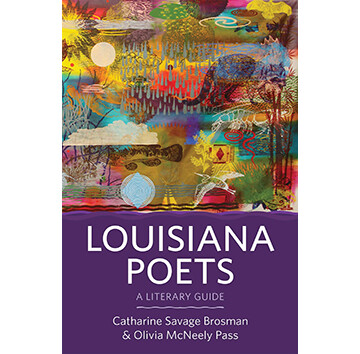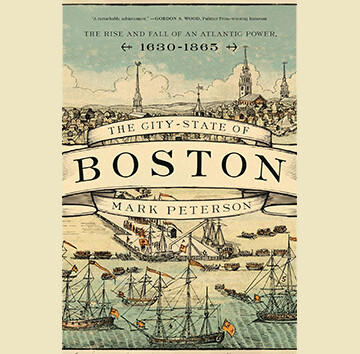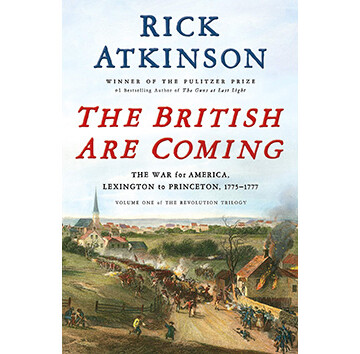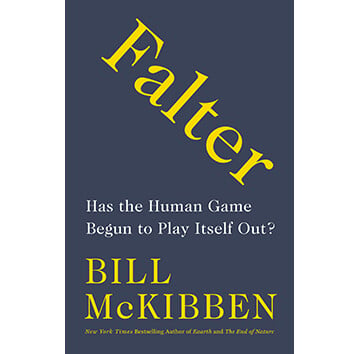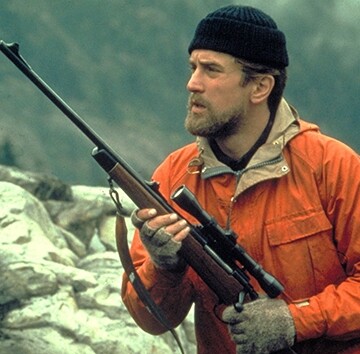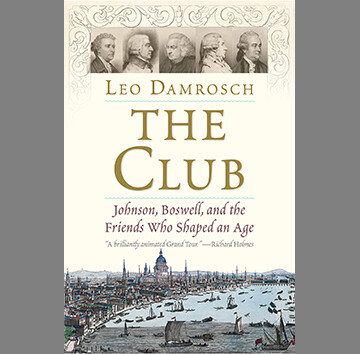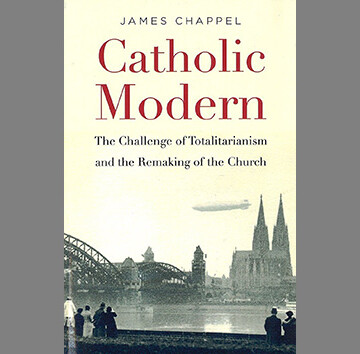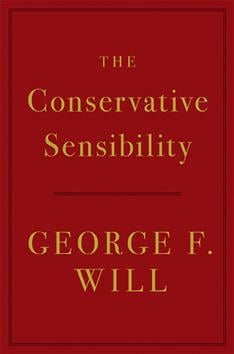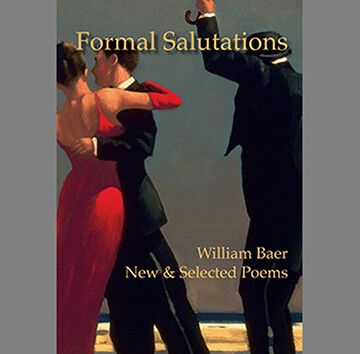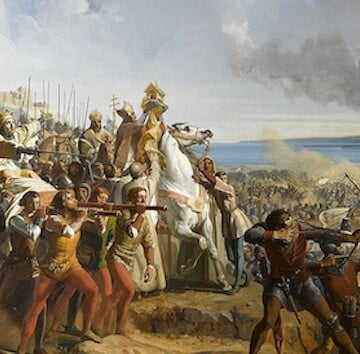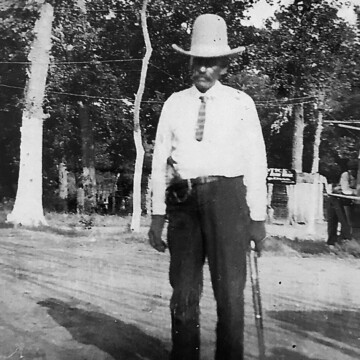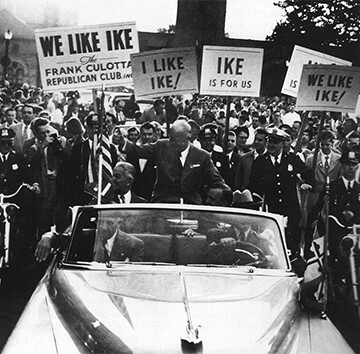How Dead Languages Work, by Coulter H. George (Oxford University Press; 240 pp., $25.00). If, like University of Virginia classics professor Coulter George, you find dead languages an “endless source of intellectual delight,” then perhaps it’s time to explore Ancient Greek, Latin, Old English, Sanskrit, Old Irish, and Welsh. Admittedly, that esoteric list won’t help...
Category: Reviews
The Philosopher’s Ball Game
[Infinite Baseball: Notes from a Philosopher at the Ballpark by Alva Noë; Oxford University Press; 208 pp., $21.95] I artificially altered my body to become a better baseball player. No, I didn’t take performance-enhancing drugs, though PED use was rampant during my time in professional baseball in the early 2000s. Anabolic steroids, human growth hormone,...
What Made the Founders Happy
[The Pursuit of Happiness in the Founding Era: An Intellectual History by Carli N. Conklin; University of Missouri Press; 254 pp., $40.00] The intellectual roots of the American founding and in particular the Declaration of Independence have long been a matter of debate. Over the years, several major interpretations emerged. The first and most venerable...
Madison Avenue’s Soviet Mole
[The Millionaire Was a Soviet Mole: The Twisted Life of David Karr by Harvey Klehr; Encounter Books, 2019; 288 pp., $25.99] A distinguished professor of history at Emory University, Harvey Klehr has in a number of books exposed the workings of foreign communists and their American counterparts and fellow travelers in academia, government, the media,...
Empire States of Mind
Imperial Legacies: The British Empire Around the World by Jeremy Black Encounter Books 216 pp., $25.99 Although this relatively short book is closer to an extended, episodic essay than to the comprehensive history of the British empire implied by the title, it is an excellent example of the author’s style. Jeremy Black takes a broad...
The Mind Behind Big Brother
The Ministry of Truth: The Biography of George Orwell’s 1984 by Dorian Lynskey Doubleday 368 pp., $28.95 Few works in literature are as terrifying as 1984, that look into the future written by George Orwell and published in 1949. British scholar Dorian Lynskey unravels the novel’s themes, inspirations, and intentions in his latest book. Since...
What the Editors Are Reading
Robert Louis Stevenson’s novella of split personality, the Strange Case of Dr. Jekyll and Mr. Hyde (1886) immediately caught the attention of the late Victorian reading public and has been catching attention from new audiences ever since. It has provided the inspiration for 123 film adaptations, including the madcap 1953 version featuring Abbott and Costello....
A Skeptic on the Road of Saints
A Pilgrimage to Eternity: From Canterbury to Rome in Search of a Faith, by Timothy Egan. Viking Press 384 pp., $28.00 “Men go abroad to admire the heights of mountains, the mighty waves of the sea, the broad tide of rivers, the vast compass of the ocean, the circular motion of the stars, and yet...
Books in Brief
The Art of Statistics, by David Spiegelhalter (Basic Books; 448 pp., $32.00). Eminent statistician David Spiegelhalter has written a primer on his expertise intended for the general reader. It’s one of those “for the rest of us books” which promises to take a complex technical subject and simplify it, sort of like Analytic Geometry for...
Hitler vs. the Anglo-Americans
On April 20, Adolf Hitler turns 131. Ten days later comes the 75th anniversary of his earthly demise in the ruins of Berlin, but he is still our contemporary par excellence. He continues to haunt and fascinate. Hitler’s countenance, his very name, seem to get indelibly etched in the collective consciousness of each new generation....
What the Editors Are Reading
No one so much as pauses when the mob shouts down reasonable voices during a panic. Just witness the media’s daily performance during the COVID-19 crisis. CNBC hit the ejector button on author James Grant during a live broadcast when he wondered aloud if the government’s civil society shutdown might lead to more harm than...
Books in Brief
The Long Night of the Watchman: Essays by Václav Benda, 1977-1989 (St. Augustine’s Press; 352 pp., $35.00). On July 4, 1983, in Prague, there occurred one of those moments that may rightly be considered a single loose pebble that caused an avalanche. Film director MiloŠ Forman had been permitted to return to his native Czechoslovakia...
Traditionalism Redux
Many intemperate critics have attacked President Trump and his intellectual influences. Benjamin Teitelbaum is not one of them. Cleverer and more fair-minded than most critiques, War for Eternity strives to show that many modern national conservative and populist movements are paradoxically informed by the arcane intellectual current known as traditionalism. At the book’s heart are...
Fatal Amendments
Enthusiastic defenders of the First and Second Amendments to the Constitution are fundamentalist cultists—and women and minorities are their victims. At least, that is the thesis of University of Miami law professor Mary Anne Franks’ new book, The Cult of the Constitution, an unforgiving disparagement of the Constitution’s white male origins and the allegedly unwoke...
Books in Brief
Making Hate Pay: The Corruption of the Southern Poverty Law Center by Tyler O’Neil (Bombardier Books; 240 pp., $16.99). Journalist Tyler O’Neil of PJ Media has been busy. From roughly around the time of the Charlottesville racial conflagration in 2017 to the filling of the inkwells that were used to print this book, O’Neil has...
Dictatorship of the Deranged
A long time ago, I happened upon a cartoon in some publication or other. A single frame—in the vein of Gary Larson—depicted thousands of sheep rushing headlong off a cliff. In the middle of this great multitude, one particular sheep moved in the opposite direction. “Excuse me…excuse me…excuse me,” it bleated. That scene came to...
The American Muse
[I]n populous Egypt they fatten up many bookish pedants who quarrel unceasingly in the Muses’ birdcage.” —Timon of Phlius, 230 B.C. For almost as long as there have been literary works, there have been literary canons, largely established by bookish pedants who do, indeed, “quarrel unceasingly.” The quarreling began early in the third century B.C....
Lighting Up History
When it comes to social hierarchy, smokers are only a few notches above pedophiles. Yes, smokers are bad, they smell terrible, and they cost us money—and everyone knows it. One would expect the “smokers bad” message to saturate The Cigarette. Surprisingly, author Sarah Milov spends almost no time singling smokers out for abuse. On the...
What the Editors Are Reading
Perhaps the greatest American autobiography in both the quality of its writing and the import of its content is Whittaker Chambers’ Witness (1952). Sadly, it’s also one of the most neglected by the country’s leftist-dominated intelligentsia. Witness describes Chambers’ winding path through the Communist underground in the 1920s and ’30s, from his Pennsylvania Quaker upbringing,...
Apologizing for the Bother
“It’s a small, white, scored oval tablet.” A little pill stands between Florent-Claude Labrouste and his planned defenestration. It offers only a temporary reprieve from the meaninglessness of life. As the narrator of Michel Houellebecq’s latest novel assures us, Captorix: provides no form of happiness, or even of real relief; its action is of a...
Books in Brief
End of an Era: How China’s Authoritarian Revival Is Undermining Its Rise, by Carl Minzner (Oxford University Press; 296 pp., $29.95). Back in the 1980s, there was reason to hope that China would succeed in reforming, or at least softening, its authoritarian political system to bring it more in line with the capitalist world. This...
Nationalism for the Lukewarm
It seems that Rich Lowry has taken time off from castigating Donald Trump and calling for the prompt removal of Confederate memorial monuments to compose an entire book making “the case for nationalism.” A media launch was provided by Fox News’s Tucker Carlson, who gave Lowry ample time on his widely watched program to expatiate on...
What the Editors Are Reading
Evelyn Waugh wrote Brideshead Revisited (1945) while on a six-month leave from the British Army during World War II. It proved a hit with the public, but the critics who had praised Waugh’s earlier satirical novels were less impressed, objecting both to its religious themes and its lush prose. Waugh never apologized for the former,...
An Austrian Frame of Mind
Professor Janek Wasserman, to his credit, is not a polemicist. His new book is indeed a leftist critique of the broad school of economic thought now colloquially referred to as “Austrian,” but it is not only that. It is also a lively and well-paced history of the astonishing influence pre-war Viennese intellectuals had on the...
The Making of the Midwest
David McCullough’s latest offering, The Pioneers, takes the reader into that little-known period of American history in which the intrepid veterans of the Revolutionary War set out to settle the territories on the banks of the Ohio River. It was the first thrust of Westward expansion that would characterize the United States during the rest...
What the Editors Are Reading
The Diary of a Country Priest (1936) by Georges Bernanos is as timely now as ever. It can be appreciated for its powerful Christian vision, its pertinence to today’s social illnesses, and its literary excellence, as shown in narrative technique, style, character portraits, and subtle plot development. I’ve taught it repeatedly. In a summer course...
Books in Brief
Debunking Howard Zinn: Exposing the Fake History That Turned a Generation Against America, by Mary Grabar (Regnery; 327 pp., $29.99). Mary Grabar has performed an invaluable service by taking the time to dissect Howard Zinn’s polemical attack on America, A People’s History of the United States (1980). Although she doesn’t cover every topic Zinn addresses,...
To Regulate, or Not to Regulate?
One vocal U.S. political tribe argues vociferously that capitalism is the source of all economic problems. Another tends to ignore that the current economy is not working for all Americans. French economist Thomas Philippon’s work should interest those who aren’t satisfied with either the complaints of the left or the indifference of the right. Philippon...
Unending Journeys
Few subjects arouse such atavistic emotions as migration—whether the arrivals come as conquerors or as kin, fleeing ordeals or seeking opportunities. For incomers, migration can represent a dream, a rational choice, an urgent necessity, or a last hope. For recipient countries, it can be an infusion of energy, a reunion, a social challenge, or an...
Chansons by the Bayou
Louisiana being the jazz capital of the United States (and the world, for that matter), one easily forgets the other contributions she has made to American culture. Then one remembers Louisiana is Walker Percy’s adopted home and the setting of his most famous novel, The Moviegoer. Perhaps the writers Ernest J. Gaines and Shirley Ann...
A City-State on a Hill
Mark Peterson’s new book traces the development of Boston from its founding in 1630 to the end of the American Civil War. In large part the book is a biography of the city, but from the unique perspective of Boston as a city-state and a commonwealth Peterson calls “remarkable for its autonomy, including an independent...
The War for America
In many ways the American Revolution was unavoidable. Given the struggle to control the resources and riches of these British colonies, armed conflict was an eventuality that could have been foreseen with a little imagination. Britain’s North American colonies offered riches too extensive and necessary to the growth of empire. The House of Hanover had...
Books in Brief
Two English historians of political movements, Roger Eatwell and Matthew Goodwin, have produced a lucid, dispassionate account of the rise and character of the present populist wave in the West. The authors examine the common features of populist movements in the U.S. and Europe that have aroused alarm among both the mainstream media and the...
Think of the Children
It seems things don’t change much after all. Consider these recent hysterical comments. “There’s scientific consensus that the lives of children are going to be very difficult,” said Rep. Alexandria Ocasio-Cortez, age 30. “And it does lead, I think, young people to have a legitimate question: Is it OK to still have children?” Gyrating chanteuse...
What the Editors Are Reading
French Catholic novelist François Mauriac (1885-1970) enjoyed a long and professionally successful life, receiving the Nobel Prize for Literature in 1952 and the Grand Cross of the Legion of Honour in 1958. He was also intermittently involved in French politics as an outspoken opponent of the German occupation of France during World War II, and...
Ritual, Tragedy, and Restoration
The Deer Hunter received the Academy Award for best picture at the Oscars ceremony in 1979. The film was much criticized by some for its Russian roulette sequences, especially the alleged “racism” on display in the film’s depiction of the Viet Cong. But The Deer Hunter is truly a mythic, poetic work of art. The...
The Perpetual Club
Such were the deep currents of literary life in 18th-century England that a group of friends meeting weekly in a London tavern included men as monumental as Samuel Johnson, Edmund Burke, Adam Smith, and Edward Gibbon. Even those members who are lesser known today—Joshua Reynolds, Oliver Goldsmith, David Garrick, Richard Brinsley Sheridan—were enormously famous in...
What the Editors Are Reading
How is it possible to describe Dostoevsky’s great but sometimes neglected novel, Notes From Underground, without provoking repugnance for the nameless anti- hero whose voice dominates its pages? He is, as he announces in the opening lines, “a sick man…a spiteful man,” yet for all his insight into the nature of his own malady, he...
Two Faces of Modern Catholicism
Much has been written about the modernization of the Catholic Church—especially the crucial years from 1870 to 1970. These histories have been written from a number of perspectives, each with different definitions of modernity. James Chappel, assistant professor of history at Duke University, gives us a new interpretation which succeeds in revising some of these...
Books in Brief
From Fire, by Water: My Journey to the Catholic Faith, by Sohrab Ahmari (San Francisco: Ignatius Press; 240 pp., $22.95). Sohrab Ahmari: Iranian immigrant, Roman Catholic convert, conservative, New York Post editor, and professional David French critic. In May, Ahmari garnered criticism and notoriety for his essay “Against David French-ism,” published in First Things, in...
The Conservative of Convenience
In a Washington Post review of George F. Will’s The Conservative Sensibility, Catholic political thinker Patrick Deneen offers the following observation: This book is not so much a brief for conservatism as it is a learned and lengthy defense of liberalism: the philosophy of John Locke and America’s Founding Fathers; the economic theories of Friedrich...
Rhythms of Civility
In Meville’s great novel Moby Dick, Captain Ahab seeks news from Captain Gardiner, whose son has been lost after an encounter with the monstrous whale. Ahab’s refusal to help Gardiner find his boy is foreshadowed in Ahab’s behavior when the two captains first meet aboard the Pequod: “Immediately he was recognized by Ahab for a...
The Crucible of Innovation
It is an inconvenient fact—and one studiously neglected by proponents of unrestricted global migration—that the main military participants in the politically incorrect and toxically masculine medieval Crusades were migrants. Nubian infantry, Egyptian cavalry, Armenian Turcopoles, European knights, and Turkic horsemen from the Eurasian steppes all migrated to the Levant during the High Middle Age period...
Emperor of Imagination
Charles the Great looms out of the swirling obscurity of post-Roman Europe like the Great Lighthouse of Alexandria, signaling simultaneously radical renewal and an alteration of everything that came before. As Janet Nelson illuminates in her new book, it is impossible to imagine the West without Charlemagne as figurative and literal progenitor. The King of...
Spying on the American Remnant
As a boy, your author lived in a working-class neighborhood just outside Houston’s city limits. My parents were the children of rural people who had come to Houston looking for work during the Great Depression. They lived in frame houses sitting on cinder blocks in Houston’s West End, a community of people Larry McMurtry called...
Supreme Court’s Drifting Days Are Done
This scrupulously objective book may be considered a gift to conservatives who have long despaired about the possibility of principled legal tenets regularly prevailing in Supreme Court opinions. For decades this long-suffering group has watched Republican Supreme Court appointees concur in various left-wing crackpot decisions that have become the law of the land. Thankfully, such...
Wake-Up Call to the Scared Bunnies
A MarketWatch story this summer let us in on why millennials stash so little cash in 401(k) accounts. Like, given climate change, what’s the point? “The weather systems are already off,” a woman named Lori Rodriguez told a MarketWatch reporter, “and I don’t think it’s hyperbolic to be a little apocalyptic.” A few days later,...
Let Us Now Praise Famous G-Men
Over the past few years, the United States federal government attempted a coup d’état against its own chief executive. Working from “opposition research” paid for by Hillary Clinton and the Democratic Party, the Deep State and its partners in the media came within a hair’s breadth of taking down a sitting president. This was the...
What the Editors Are Reading
Dostoevsky’s great 1866 novel Crime and Punishment reads like a frenetic vision. A compulsive gambler and one-time political radical who was condemned to Siberia and forced labor, Dostoevsky created the novel’s Rodion Raskolnikov, a half-mad dreamer who expressed the radical, nihilistic ideas of the time. Drawing on his own struggles and experiences, Dostoevsky used Raskolnikov...
We Ought to Like Ike
As a second-year West Point cadet in March 1969, I was returning to my room after chemistry class midafternoon on a Friday. As I stepped inside Pershing Barracks, I saw a number of cadets huddled around a note posted on the stairway railing. In neat penmanship were the words: “General Eisenhower died this morning.” Neither...
